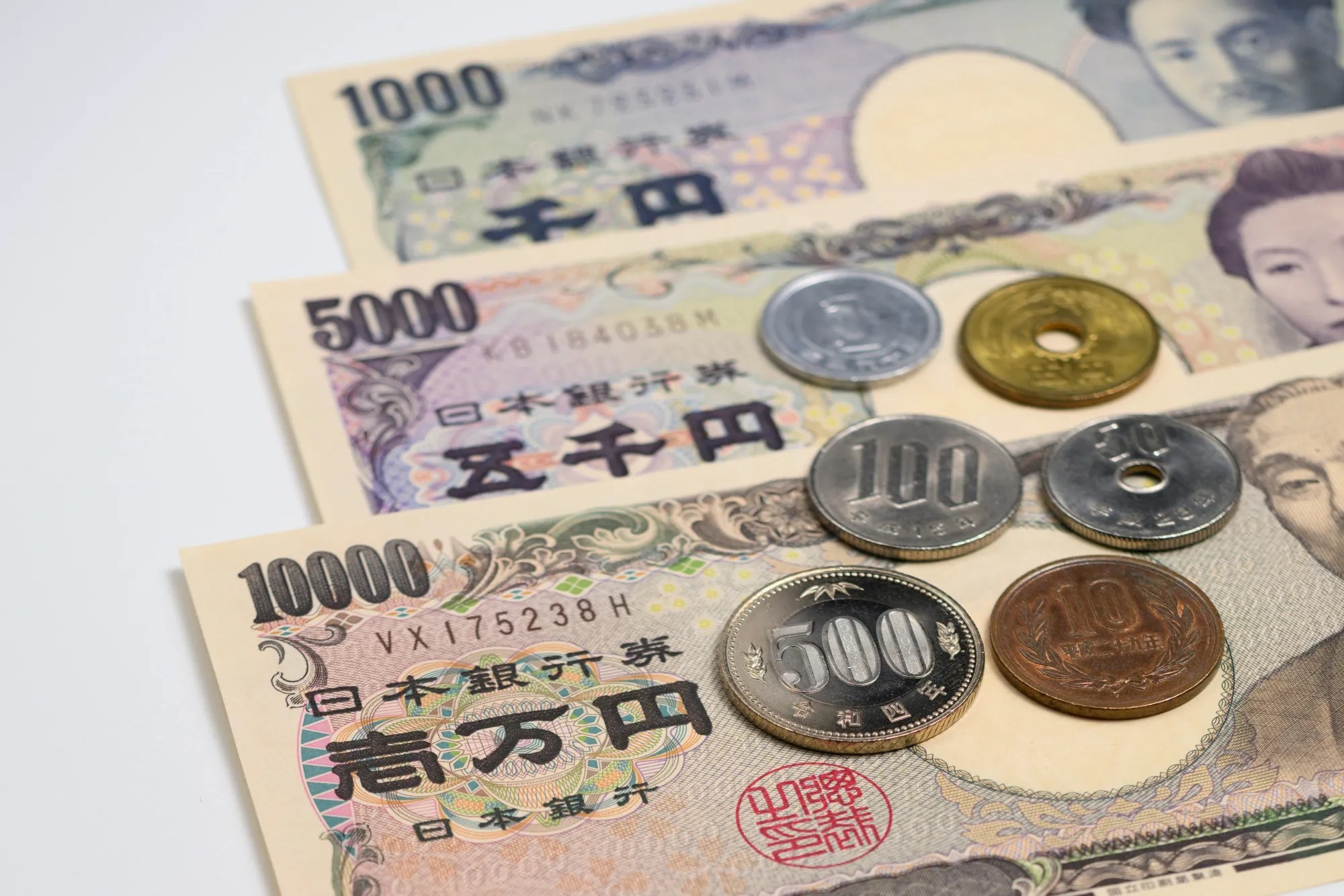The Japanese yen slid to a three-month low against the US dollar on Monday, deepening losses for a second day in a row, as investors believed that the loss of the ruling coalition's parliamentary majority in Japan's general election would slow future interest rate hikes by the Bank of Japan.
The new jump in the yield on 10-year US Treasury bonds is also negatively pressuring the Japanese yen, which comes amid growing speculation about the Federal Reserve's cautious approach to implementing the monetary easing cycle and cutting interest rates in the United States.
Price overview
Japanese Yen Exchange Rate Today: The dollar rose against the yen by 1.1% to (153.88¥), the highest since July 31, from the opening price of today’s trading at (152.24¥), and recorded its lowest level at (152.24¥).
The Japanese yen ended Friday's trading down 0.3% against the US dollar, resuming losses that had been halted on Thursday for the first time in four days as part of a breather.
The yen lost 1.9% last week against the dollar, its fourth consecutive weekly loss, due to the decline in the chances of raising Japanese interest rates, in addition to the broad rise in US yields.
Japan's general election Sunday gave the Liberal Democratic Party, which has ruled Japan for almost all of its postwar history, and its junior coalition partner Komeito 215 seats in the lower house, short of the 233-seat majority needed. In the previous parliament, the LDP held 247 seats and Komeito 32.
The Liberal Democratic Party lost its majority in Japan's lower house for the first time since 2009, so alongside its junior coalition partner Komeito, the ruling party will need to work with other parties to form a new government.
There is now likely to be a period of jockeying to secure a new ruling coalition in the country led by current Prime Minister Shigeru Ishiba, which could result in a new government lacking the political capital to preside over high interest rates and could herald another era of rotating leadership.
Japan has already had four different prime ministers in just over four years and the instability is expected to heighten caution at the Bank of Japan, which meets to set interest rates later this week.
Opinions and analysis
“The general election result itself is negative for the markets, due to the heightened political uncertainty,” said Masahiro Ichikawa, chief market strategist at Sumitomo Mitsui DS Asset Management.
•Coalition losses could reduce the chance that the next government will deliver a clear economic agenda, Morgan Stanley (NYSE:MS) analysts said in a note.
“The election result was a blow to the LDP, leaving the party with a bruise in its eye and a nosebleed, but it is still holding on,” said David Bowling, director of Japan and Asia trade at Eurasia Group.
Ishiba's party is still the largest party in the House of Representatives, so it will remain in the driving seat when it comes to forming a new coalition government, and I think that's good news, Poling added.
US Treasury yields The yield on 10-year US Treasury notes jumped 1.0% on Monday, extending gains for a second straight session, to a three-month high of 4.284%, boosting investment opportunities in the US dollar.
The development comes in the US bond market, amid growing bets that the Federal Reserve will proceed with modest interest rate cuts in the near term.
According to the CME Group's FedWatch tool, the probability of a 25 basis point cut in US interest rates at the November meeting is currently priced at 95%, and the probability of keeping rates unchanged is priced at 5%.
The current widening gap in long-term bond yields between Japan and the US reduces the attractiveness of Japanese yields as an investment target for short buyers and deal financing, which puts negative pressure on the Japanese yen exchange rate.
Japanese Yen Outlook: “It’s another thing they have to consider when they have to look at the economy,” said Bart Wakabayashi, manager of the State Street branch in Tokyo. “Are we going to have another series of prime ministers every 10-12 months in Japan? That wouldn’t be good for the yen.”
Analysts at BNY said the next immediate target for USD/JPY would be 155 with 160 potentially a red line that could prompt intervention by the Japanese Ministry of Finance.
Analysts at Bank of New York said the dollar could rise to 155 yen again as the Bank of Japan downplays the immediate need to raise interest rates.






































